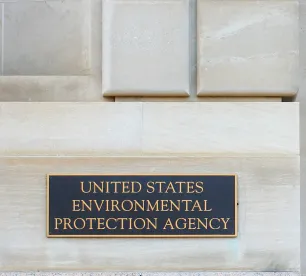Yesterday the US House of Representatives passed a bill that would require EPA to regulate PFAS under every Federal environmental law that might possibly apply. Nearly two dozen Republicans joined Democrats in voting for the bill which now moves to the US Senate.
We now know that PFAS are present most places we have reason to look for them and that cleaning them up to levels that some States have determined necessary may be impossible but is most certainly very expensive.
That alone makes this a Federal challenge requiring a Federal solution, but not hysteria.
Many of us live in communities rushing to add extra steps to the treatment of our drinking water to reduce the concentrations of PFAS to the almost immeasurably low concentrations our States are confident are safe.
In the meantime, fear abounds. After all some of us have been drinking the water that the State now tells us may not be safe for a very long time.
That's why the Federal Government's first priority should be understanding the actual health and ecological effects of PFAS in our environment. Progress is being made on this critically important first step but this sort of science takes time. Congress should certainly press EPA to do this work as quickly as possible but not interfere with it.
The legislation would require EPA to take action under the Safe Drinking Water Act, Comprehensive Environmental Response, Compensation and Liability Act (CERCLA), the Clean Water Act, the Clean Air Act (CAA) and Toxic Substances Control Act (TSCA) to address PFAS, the widely used class of persistent, non-stick chemicals linked to adverse health effects that has prompted concerns across the country over contamination in drinking water. - Inside EPA




 />i
/>i

